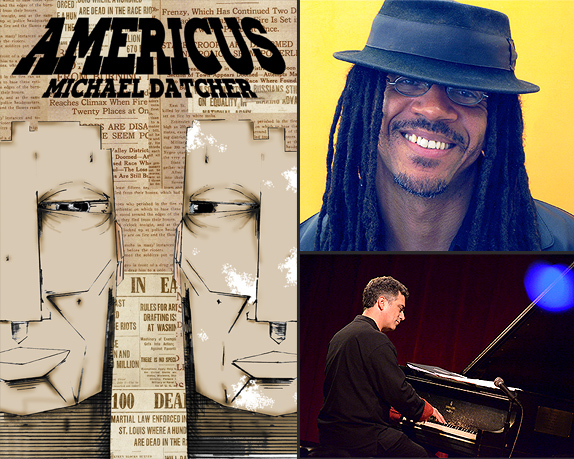
Sometimes nonfiction is just not quite creative enough. Not even creative nonfiction. “With fiction, my goal is to remind people about the vitality of fiction. In our world people prefer nonfiction,” says Loyola Marymount Professor and New York Times Bestselling author Michael Datcher. “Because it is made up material people don’t respect it as a way to talk about the real world. They don’t look at it as a way to learn something about the real world, as opposed to a book of theory…people want to be entertained, rather than learn something about the past or themselves.”
Not to say that Datcher doesn’t aim to entertain. I mean, he was propositioned by Will Smith’s Overbrook Productions to write the screenplay for Raising Fences after all. What is Raising Fences, you ask? That’s just the aforementioned New York Times Bestseller that Datcher wrote. If that’s not entertaining enough, Datcher’s play SILENCE was commissioned by and premiered at the Getty Museum. He has served as the Executive Director of a literary and jazz education performance nonprofit in Los Angeles called The World Stage, and his poetry has been widely anthologized.
This Saturday, Datcher is bringing his newest work to Albuquerque thanks to 516 ARTS and Outpost Performance Space. AMERICUS is a uniquely American story swaddled in Egyptian mythology and set in East Louis circa 1917. It’s sort of feels like the ghost of a slave ship sailing up the Mighty Mississippi, and docking at the Port of St. Louis the day after the East St. Louis race riot ended. It’s historical and mythological, but not in the same way Greek and Roman mythology is excessively adapted and overrepresented in Western Civilization. It is Black mythology and American history, and though history may not always be entertaining…it is most certainly creative. AMERICUS feels like fact but it’s fiction, in spite of Datcher being very well-known for his pioneering work in Creative Nonfiction.
Asar and Set aren’t just the stars of this novel, they are Ancient Egyptological figures. Some of you reading this might be more familiar with Asar and Set’s story if I swapped their names for “Cain and Abel.” Asar is the ancient Egyptian God of the underworld and, more importantly, resurrection. Set is the ancient Egyptian God of storms, desert, chaos and war. In this novel, Asar and Set are the names of a pair of identical twins. Set is the youngest and takes issue with his older brother Asar getting the benefits of being first born son. However, Set is the baby of the family, so he gets a fair amount of attention himself, even “family favorite” status. That is until he turns 10 years-old and contracts vitiligo (a skin disorder made famous by the late Michael Jackson). After which, he begins blaming his mother for her inability to perform the most basic function of parenting. He blames her for not protecting him from everything, including himself.
Set in an era when America was its own worst enemy, AMERICUS reminds us how we got here. When I say “got here,” I mean present day fatal force by American police departments on predominately Black and Brown men. When I say “got here,” I mean civil unrest in suburban Missouri around the killing of an unarmed Black teen by police. When I say “got here,” I mean thirteen miles outside St. Louis, about the same distance as Ferguson, where AMERICUS is set. And, when I say “an era when America was its worst enemy,” I mean to be sarcastic.
A mixture of made up people and people throughout history, AMERICUS is little bit of “back then, right now” and a little bit of “what’s happening now, back then.” Datcher weaves actual quotes from Ida B. Wells and Frederick Douglass into this tapestry of a novel about complex Black characters like an old school mixtape. Complete with characters that are quite scratched. “These are complicated Black characters,” says Datcher. “Sometimes when you are writing about complicated Black people, White folks get mad at you. And so do Black folks.”
Datcher will be performing from AMERICUS Saturday at 7:30pm at the Outpost Performance Space. Tickets are $10/$5 for students and members of both The Outpost and 516 ARTS. He will be joined by internationally known and locally “homed” pianist John Rangel. Datcher says audience goers should expect to be entertained as he and Rangel are sure to whip up a potent mixture of performance art supported by originally composed music. I say expect to take a trip down memory lane, America.
“I want people to think about the story, the narratives, the tropes of America. How did we get to this place in America?” Datcher asks. Sometimes, the truth is the most creative thing to write.



Responses to “Michael Datcher takes ABQ on a distinct ‘trip down memory lane’ this Saturday at the Outpost”